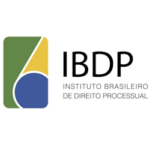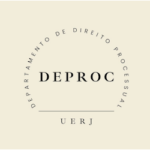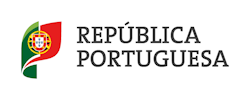INSCRIPTION
Registration is required by 13th December

Instituto Jurídico Portucalense
Instituto Jurídico Portucalense
The 2nd edition of the International Congress of Civil Procedural Law is dedicated to the CHALLENGES OF DISJUDICIALISING JUSTICE. At a time when the courts are still inefficient, inaccessible, time-consuming and costly, demands have been made for a justice system that is closer to the citizen, with a view to effectively realising the right of access to justice.
It is therefore time to give space to the study of DISJUDICIALISATION, as a phenomenon that diverts the resolution of some disputes to public services and private entities, seeking to provide a faster, more effective, sometimes less costly response, often based on consensus, and always in search of the means that are most appropriate to the nature of the dispute.
The challenges that this alternative path faces and provides are demanding. They take into account new social realities, transparency, efficiency, accessibility, new technologies, artificial intelligence and, among other things, the specificities of each branch of law.
Therefore, and also in the light of the Sustainable Development Goals of the United Nations 2030 Agenda, in particular those of promoting the rule of law at national and international level and guaranteeing equal access to justice for all, it is topical and of practical and academic interest to critically analyse and present innovative proposals for procedural solutions that fit into this context. It is consequently the mission of this Congress to bring together researchers and professionals who, through their scientific studies and practical experiences, can contribute to the analysis of the impact of De-Judicialisation on the various areas of law and, above all, on the lives of citizens.
Instituto Jurídico Portucalense and Universidade Portucalense, in partnership with Universidade do Estado do Rio de Janeiro, Universidade Estácio de Sá, Universidade de Vigo, Instituto Brasileiro de Direito Processual, Associação Brasileira Elas no Processo and Associação dos Registradores Civis de Pessoas Naturais do Brasil (ARPEN BR), invite the academic community to participate in the II International Congress of Civil Procedural Law – The Challenges of De-Judicialisation of Justice, to be held on 15 and 16 December 2023, in a hybrid format, in person and online, through the Colibri/Zoom platform.
The period for submitting abstracts for the II International Congress on Civil Procedural Law – The Challenges of De-Judicialisation of Justice, held as part of the ARBLAW Project of the Portucalense Legal Institute/UPT, is now open until December 10, 2023.
The Congress will take place on 15 and 16 December, both online and in person, at UPT.
The papers to be presented should fall within the following lines of research:
Recipients: PhD, Masters, PhD students and Master’s students
Abstracts should include:
Papers are accepted in Portuguese, English, Spanish and Italian.
The communication and/or paper can be co-authored (max. 2 authors, as long as one of them is a Doctor/Master or Doctorate/Master student). In the case of co-authorship, the enrolment/registration of both authors is compulsory.
The abstract of the communication and/or paper (optional) can be sent to ci-dpc@upt.pt.
If you choose the “communication and paper” option, the scientific article must be sent by 15 January 2024 to ci-dpc@upt.pt .
The scientific article must be presented in Times New Roman, size 12, 1.5 spacing, and be between 15 and 20 pages long. No specific citation rules are required, which will be indicated later for adaptation according to the style rules of the journal to which the text will be submitted, as long as it scientifically fulfils the conditions for double-blind peer review.
Registration is required by 13th December
Protocoled Journals (Scopus)


UPT | IJP

UVigo

UERJ | UNESA

UERJ | UNESA

UPT | P.PORTO | IJP

UPT | IJP

ULusófona | IJP

UPT | IPCA | IJP








